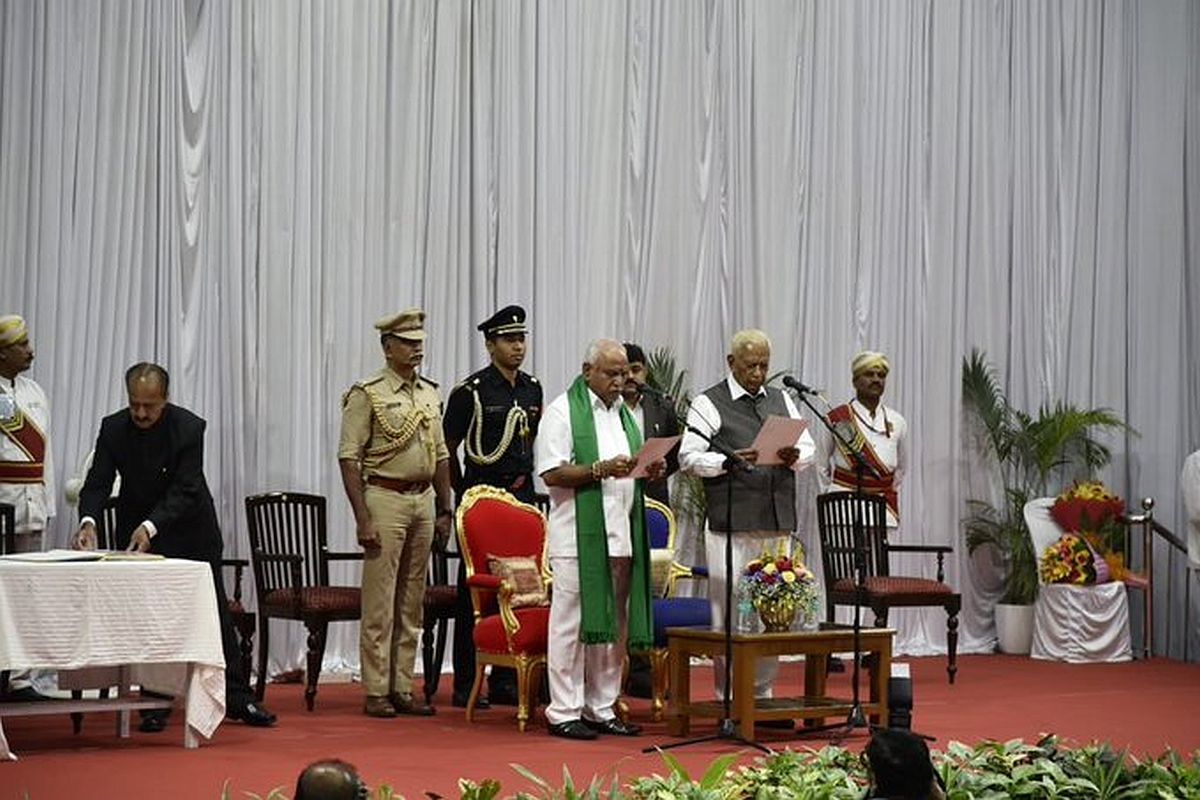The Karnataka government of BS Yediyurappa, who won a voice vote of confidence on Monday, is a lame duck from the outset. The BJP has only 105 members in the 224-member Assembly. The resignation of 17 rebel MLAs belonging to the Congress and the Janata Dal (Secular) led to the fall of HD Kumaraswamy as Chief Minister. They have been disqualified by Speaker KR Ramesh Kumar for defying whips of their respective parties and barred from contesting election during the term of the current Assembly.
Though they have challenged the Speaker’s order, the Supreme Court is loath to intervene. Once the 17 seats are declared vacant, by-elections to fill them will have to be conducted in six months. None of the 17 constituencies is considered a BJP stronghold. The electorate is up in arms against the rebels who are set to join the BJP.
Advertisement
While plotting to defect, they overlooked the power and scope of Articles 101, 102 and the Tenth Schedule of the Constitution. Article 101 (3) casts a responsibility on the Speaker to satisfy himself that a resignation of an MLA is “voluntary and genuine.” Section 2 (b) of the Tenth Schedule says an elected member of the House can be disqualified “if he votes or abstains from voting contrary to any direction issued by the political party to which he belongs.” Contrary to popular perception, it was the Speaker’s action, which brought down the strength of the House to 208, and that facilitated Yediyurappa to sail through comfortably with just 104 BJP MLAs and one independent supporting him. In spite of his impartiality, the Speaker’s action was criticised by both the ruling alliance and the BJP. Ramesh was elected to the Assembly on a Congress ticket.
Even after a week of assuming office as Chief Minister, Yediyurappa is unable to constitute a Council of Ministers. Sixty BJP MLAs are chasing 20 available berths. Article 163 of the Constitution says, “There shall be a Council of Ministers with the Chief Minister at the head to aid and advise the Governor in the exercise of his function.”
Yediyurappa is relying on his 2008 experiment by forming the first BJP government in Karnataka when his party won 110 seats, three short of a simple majority. He enticed some Independents and survived as Chief Minister for almost two years during which period he developed the technique of luring Opposition MLAs to resign from the Assembly and thereby forcing byelections and winning them by unabashedly using official machinery. The recent Lok Sabha election, which resulted in the BJP winning 25 of the 28 seats in Karnataka, gave Yediyurappa added confidence of winning any by-election to the Assembly. Though the JD(S) may be preparing to ‘adjust’ with the BJP, the Congress, in spite of being leaderless and rudderless at the national level, is readying for a showdown with Yediyurappa who is occupying the lonely seat.









